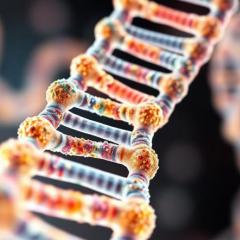A UQ Foundation Research Excellence Award won by Dr Angus Harding will assist with critical discoveries in the field of brain tumour research.
Dr Harding, a Research Fellow at The University of Queensland Diamantina Institute, was awarded the financial grant at The UQ Research Excellence Awards ceremony on Tuesday the 13th of September, after submitting a proposal in support of a brain-cancer project, using evolutionary models to design better therapies.
Although modern therapies have increased patient lifespan, brain tumours are incurable and patients die on average only 14 months after their initial diagnosis. The ability for these tumours to develop resistance to targeted therapies has sparked an international research effort to attempt to discover the reasons why.
In a multi-discipline venture involving UQDI, The Princess Alexandra Hospital Department of Neurosurgery, Queensland Neurosurgery and Spine Surgery, and collaborators in evolution and ecology, Dr Harding researches primary brain tumours from patients at The Princess Alexandra Hospital, endeavouring to understand and solve therapeutic resistance.
Through neurosurgical samples, Dr Harding examines the tumours, making tumoursphere lines which become the experimental model for the patient tumour. Using these lines to better understand how the tumours evolve, Dr Harding hopes to provide therapeutic solutions.
In collaboration with Dr Tianhai Tian at Monash University, Dr James Whitacre at the University of Birmingham and Professor John Endler at Deakin University, Harding and his team will create evolutionary models, predicting optimal drug regimes which prevent the tumour from evolving and maintain the tumour in a drug-responsive, fragile state.
The major goal for Dr Harding and his team is innovative research solutions, leading to increased patient survival and ultimately, patient remission.
Dr Bruce Hall, Head of The Princess Alexandra Department of Neurosurgery, says surgery can only go so far and credits the multidisciplinary research undertaken at UQDI as for developing new therapies that may allow the long-term survival of patients diagnosed with brain cancer.
“Patients naturally want the best treatments and we can reassure them our work is done in collaboration with the best researchers,” Dr Hall said.
Dr Hall believes the aggressiveness of tumours can only be prevented by ongoing research and a better understanding of how tumours react and evolve. He says having close access to clinicians provides greater research yield and enriched knowledge for neurosurgeons.
“Being located within the PA Hospital is a crucial aspect in research. The onsite connection between the patient and the lab allows for higher quality and improved research and greater exposure to clinicians in a most timely manner.”
Dr Sarah Olson, neurosurgeon at QNS and Adjunct Research Fellow at UQDI says financial help is always appreciated to progress research further and help individuals and families affected.
“Everybody needs hope when facing such a terrible affliction. Hope in research is empowering.”
Dr Harding emphasizes the critical role of patients and their families in his research. “Without the support of patients and their families, this research program could not move forward. Our brain cancer research program integrates many disciplines of science, however our most important collaborative partners are patients and their families.”
Dr Harding will use his grant to further research in drug testing to further understand tumours responses to therapies and development through preclinical trials, with the aim of translating these approaches to the clinic in future applications.



